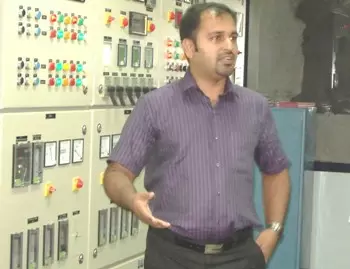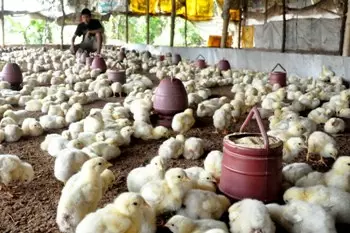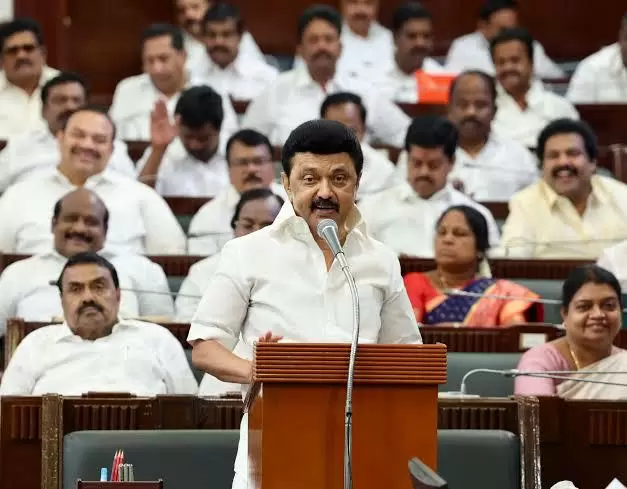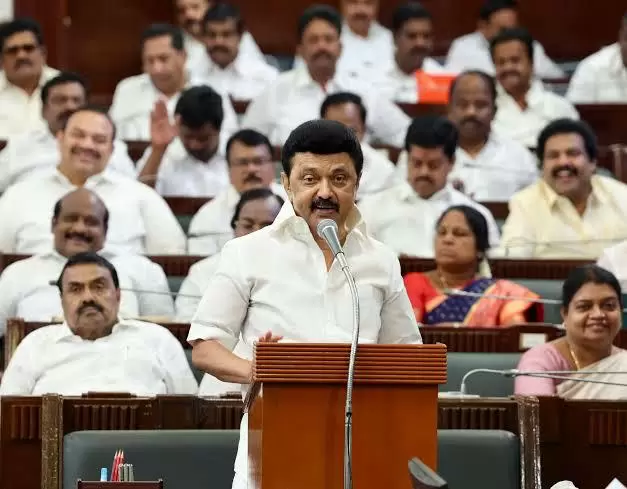Organic manure and electricity from chicken dropping took the stench off Namakkal

29-March-2014
Vol 5 | Issue 13
This may come as a surprise to many, but it is possible to generate electricity from chicken litter.
If you think we are talking of some futuristic technology, read on to find out how a poultry farmer from a small town in Tamil Nadu is producing 3.76 MW power per hour and about 200 tonnes of organic manure per day from chicken droppings.
 |
|
Durairaju conceived the technology to produce electricity from chicken litter
|
S Durairaju was among the earliest entrants into poultry farming in Namakkal district, which is regarded as the poultry hub of India.
He started a farm in 1976 along with his brother with few thousand birds. By early 1990s they had over 1 lakh birds and several other farmers had ventured into poultry in the region.
There are around 400 poultry farms in and around Namakkal today, which rear around 3 crore birds and produce an estimated 2.6 crore eggs per day.
As the poultry sector grew in size, the region grappled with the problem of disposing of the chicken litter. The litter was dumped in fields. The dirty heaps emitted toxic gas (hydrogen sulphide), caused stench, and polluted ground water.
It was while trying to figure out a solution to this environmental hazard that Durairaju realized that the litter could be used to produce electricity.
“I approached several scientists to find out if the litter could be put to some use. I did not receive much encouragement. But I did not stop my efforts and continued to study various possibilities.
“I started doing my own experiments and once successfully ran a generator using processed chicken litter. That gave me a lot of confidence and determination to continue my efforts,” says 58-year-old Durairaju.
He was introduced to the concept of organic farming when he visited his daughter in the US in 1998. His subsequent research on the topic opened his eyes to the enormous potential in the chicken litter, which was available in plenty in Namakkal.
In 2000 he set up a pilot plant to develop the technology for biomethanation to produce bio-gas from the chicken litter to generate electricity. The next year he formed a private company, Subhashri Bio Energies.
The Ministry of Non - Conventional Energy Sources, Government of India, approved the technology and gave the nod for setting up a 2.5 MW power generation plant. The Rs.60 crore plant was set up on a 60-acre plot of land at Goundampalayam in Namakkal in 2004.
Production has gone up to 3.76 MW now. They sell about 20,000 units of power to the State grid daily at the rate of Rs.3 per unit. The company has sold so far 65 lakh units of power to the State, worth about Rs.2 crores.
“We use 10 percent of the power for running the factory,” says Salai Sivaprakasam, Durairaju’s son as he takes you around the factory explaining how raw litter is processed in a centralized anaerobic digester to produce power, organic manure, and liquefied fertilizer.
The 31-year-old Sivaprakasam, who is the Executive Director at Subhashri Bio Energies, has specialized in Biomass Power generation from the University of Zarogosa, Spain. He also has a master’s degree in renewable energy from Loughborough University, United Kingdom.
 |
|
Sivaprakasam hopes that awareness would spread among farmers on the benefits of organic manure
|
The residues from the digester are converted into organic manure and liquefied fertilizers by adding NPK (nitrogen, phosphorous, potassium) bacteria and bio-control agents. They currently produce about 10,000 litres of liquefied fertilizer per day.
For the entire operation, they procure around 300 tonnes of chicken litter daily, which is about 10 percent of the total waste generated. They source the waste from around 100 nearby farms at the rate of Rs.1000 per tonne.
But why aren’t they scaling up production making using of all the litter in the district? “Farmers lack awareness on benefits of organic manure. The demand for organic manure will increase only if this situation changes,” says Sivaprakasam.
For expanding the business, they need to be selling not just their power, but also the stocks of organic manure and liquefied manure.
 |
|
Chicken litter is procured from around 100 nearby farms at the rate of Rs.1000 per tonne (Photo: Indian Photo Agency - for representational purpose only)
|
Apart from marketing under its own brand, PSO6, the company also markets the manure through leading chemical fertilizer companies like Madras Fertilizers Limited (MFL), Fertilizers and Chemicals Travancore Limited (FACT), and Indian Farmers Fertilizer Cooperative (IFFCO).
But they have a long way to go. “Farmers don’t need to turn fully organic. It is enough to even start with a mixture of 50 percent organic and 50 percent chemical fertilizers.
“The nutrients in the organic manure can replenish the soil with the microbes, which have disappeared due to the excess use of chemicals. It is due to absence of the microbes that the yield from chemical fertilizers has come down over the years,” says Sivaprakasam.
The company has provided employment to nearly 100 persons, many of them locals. They also have a R & D team working on quality control.
Both father and son hope that their efforts to create wealth out of waste and in the process provide clean energy and jobs to people will bear more fruit in the future.














